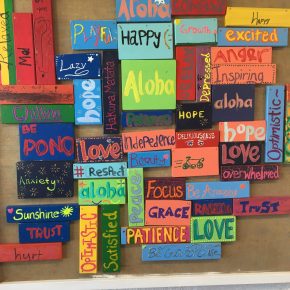Katherine Irwin, University of Hawaii-Manoa, works with local public high schools in Honolulu, HI. ASA asked Irwin about her work:
What is the objective of your work with the high schools? I work with school counselors who provide therapeutic services to students who need extra support. This is a stated, but not written mission of public high school counselors.
Could you describe your involvement with the schools? I write grants to support and plan activities for counseling services. The end goal of the project is to replace exclusionary punitive practices in high schools with more holistic approaches tailored to the needs of individual students. Talk therapy and support groups are offered to students who are having trouble in school for a variety of reasons (e.g., upheavals at home, mental health diagnoses, trouble concentrating in class, acute or chronic anxiety, as well as past and current trauma). The students in the group decide what curricula they would most like to cover–one year, anxiety might be a common problem among students, while another year anger might be a problem that students want to discuss–and the support groups allow a safe space for students to talk about difficult subjects and to gain tools to manage challenges. The schools where I work enroll mostly working-class students who are of Pacific Islander ancestry. Therefore, the project is designed to combat the schools-to-jails track for poor and working-class students of color in the state. Currently, 20% of the youth population of Hawaii is Native Hawaiian, while Native Hawaiians make up 50% of youth incarcerated in Hawaii. Our project aims to end this trend by offering alternatives to school punishment for public school students.
What sociological knowledge and/or skills do you use? Crime causation theories, critical race perspectives, feminist theory, program evaluation methodologies, grant-writing skills.
How did you connect with the local schools? I learned of opportunities to provide support programs for youth experiencing trauma from my community-based work in the past.
Duration of the project? The project has been ongoing since 2007.
